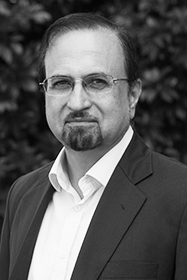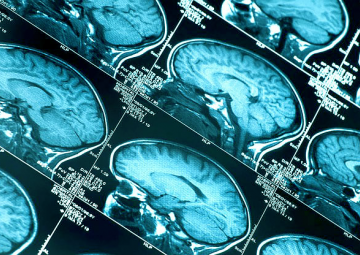
Sample:
(please note we are not recruiting from this website, participation will be invite-only):
- Clinician, researcher, or clinician-researcher, with considerable experience in patient care or research or both, specifically in the assessment of cognitive decline and dementia in older persons and with specific expertise in vascular cognitive disorders (VCD).
- AND from a medical specialist background (including geriatricians, neurologists, psychiatrists, rehabilitation physician) or non-medical experts (e.g. nurse, social worker, occupational therapist) who have published on the diagnosis of VCD and are recognized as experts by peers.
Delphi 1: Updating the VASCOG Consensus Diagnostic Criteria and Harmonising Neuropsychological Assessment for Vascular Cognitive Disorders
This project aims to reconsider the Vascular Behavioural and Cognitive Disorders criteria (i.e. VASCOG) based on developments in the field of dementia diagnostics since the criteria were first published in 2014. The Delphi process will include three rounds, including two feedback rounds; therefore, a total of three surveys.
This survey aims to determine which potential diagnostic criteria for VCD are most acceptable and which may require modification. The survey also aims to operationalize the criteria for use in clinical and research settings including clinical trials. The goal is that these updated “VASCOG-2” criteria become an international standard and thereby facilitate diagnostic consistency of VCD among clinicians and researchers.
There will be some novel and possibly contentious questions put to the expert participants. This includes the potential inclusion of specific quantitative guidelines for neuroimaging markers of cerebrovascular disease, and the inclusion of novel biomarkers based on recent research developments.
If you are interested in reading more about the diagnosis of VCD, please see these publications:
- Sachdev P, Kalaria R, O'Brien J, Skoog I, Alladi S, Black SE, Blacker D, Blazer DG, Chen C, Chui H, Ganguli M, Jellinger K, Jeste DV, Pasquier F, Paulsen J, Prins N, Rockwood K, Roman G, Scheltens P; Internationlal Society for Vascular Behavioral and Cognitive Disorders. Diagnostic criteria for vascular cognitive disorders: a VASCOG statement. Alzheimer Dis Assoc Disord. 2014 Jul-Sep;28(3):206-18. 10.1097/WAD.0000000000000034
- Sachdev PS, Lipnicki DM, Crawford JD, Brodaty H. The Vascular Behavioral and Cognitive Disorders criteria for vascular cognitive disorders: a validation study. Eur J Neurol. 2019 Sep;26(9):1161-1167. 10.1111/ene.13960
Delphi 2: Consensus on Harmonised Neuropsychological Test Measures for Vascular Cognitive Disorders
This project aims to develop a harmonised neuropsychological battery for vascular cognitive disorders (VCD), building on the well-received NINDS-CSN battery that has now been adopted in several regions (Hachinski et al., 2006). We aim to enhance and expand the NINDS-CSN battery which focused on traditional face-face testing by a clinician, to include telephone, videoconference, and computerised methods. The Delphi process will be conducted the same as Delphi 1 and simultaneously to align the consensus outcomes.
The goal of Delphi 2 is that these harmonised neuropsychological measures become an international standard for VCD and thereby facilitate consistency of neuropsychological assessment of VCD between clinicians and research.
If you are interested in the latest research on enhancing the neuropsychological assessment of VCD, please see these publications:
- Bentvelzen A; Chander R; Foo H; Lee T; Lipnicki D; Sachdev P, 2023, 'Neuropsychological Assessment of Cognitive Aging', in The SAGE Handbook of Clinical Neuropsychology Clinical Neuropsychological Assessment and Diagnosis, SAGE, London, UK, pp. 77 - 93, http://dx.doi.org/10.4135/9781529789539
- Paradise MB, Sachdev PS. Vascular Cognitive Disorder. Semin Neurol. 2019 Apr;39(2):241-250. 10.1055/s-0039-1678582
Research Personnel
- Professor Perminder Sachdev
- Dr Adam Bentvelzen
- Dr Nicole Kochan
- Dr Vibeke Catts
- Dr Jiyang Jiang
- Dr Satoshi Hosoki
- Dr Danit Saks
- Dr Matt Paradise
- Dr Rebecca Koncz.





